- Home
- Deborah Smith
On Bear Mountain
On Bear Mountain Read online
ON
BEAR
MOUNTAIN
ALSO BY DEBORAH SMITH
A Place to Call Home
When Venus Fell
THE CHARACTERS IN THIS BOOK ARE IMAGINARY. ANY SIMILARITY TO REAL PERSONS, EITHER LIVING OR DEAD, IS PURELY COINCIDENTAL AND NOT INTENDED BY THE AUTHOR.
ON BEAR MOUNTAIN. COPYRIGHT © 2001 BY DEBORAH SMITH. ALL RIGHTS RESERVED. NO PART OF THIS BOOK MAY BE REPRODUCED IN ANY FORM OR BY ANY ELECTRONIC OR MECHANICAL MEANS, INCLUDING INFORMATION STORAGE AND RETRIEVAL SYSTEMS, WITHOUT PERMISSION IN WRITING FROM THE PUBLISHER, EXCEPT BY A REVIEWER WHO MAY QUOTE BRIEF PASSAGES IN A REVIEW.
FOR INFORMATION ADDRESS WARNER BOOKS, 1271 AVENUE OF THE AMERICAS, NEW YORK, NY 10020.
A TIME WARNER COMPANY
ISBN 0-7595-8071-5
A HARDCOVER EDITION OF THIS BOOK WAS PUBLISHED IN 2001 BY LITTLE, BROWN AND COMPANY.
FIRST EBOOK EDITION: FEBRUARY 2001
VISIT OUR WEB SITE AT WWW.IPUBLISH.COM
DEDICATION
Every book grows into its own unique structure, its bones forming the shape of some mysterious animal no one — not even the author — has ever seen before. This story evolved in wonderful, unknown patterns, sometimes sprouting unneeded parts, then reabsorbing them, sometimes lumbering along on a dozen feet, then sprinting on two. I want to thank the following loyal, caring, and extremely talented friends for helping me ultimately birth a creature strong of backbone, proud of head, and tender of heart: Sandra Chastain, Nancy Knight, Gin Ellis, Donna Ball, Debra Dixon, Ann White, and Anne Bushyhead. Also, my favorite New Yawkers, Jacqui, Joe, and Christopher D’Allesandro.
This book is for every roadside Picasso who paints heaven on a weathered board, for every sculptor of found objects who twists a tin can or a rusty timber saw into an objet d’art, and for all the other dreamers who have the courage to create something wonderful out of nothing.
This book is for Ma, Jack, Rena, Chris, Rachel and Buck, and as always this book is for Hank, who told me exactly what a crankshaft and a buggy spring look like, how hard it is to bend rebar, and how to rustproof a rusty iron pot. For those and so many other wisdoms shared in twenty years of marriage, I love him.
Finally, this book, built on past and future memories, joy and sorrow, loss and hope, is for Pat and Jack Cunningham, and most of all, for Ann and George.
SHOW ME A HERO AND I WILL WRITE YOU A TRAGEDY.
—F. Scott Fitzgerald
ON
BEAR
MOUNTAIN
PROLOGUE
I vowed to embarrass Quentin Riconni if he died in my arms that day, there on that Georgia mountaintop under a cold winter sky. “Powells don’t grieve the way ordinary people do,” I whispered in a voice that shook against the wind curling over the high mountain glen. A hard night was coming; the frost would kill every vulnerable living thing, including him.
“I’ll spend the rest of my life telling everyone I meet who you were and why I love you and why I was never the same after you died. And I’ll make you sound a lot better than you were, stronger and kinder than you ever had any intention of being. People will say you must have charmed me with big talk and good looks. I’ll have to tell them you didn’t talk that much or look that good. Do you really want me to lie?”
His eyes remained closed and his lips slightly parted, his breath now making only a faint mist in the frigid air. It had been at least an hour since he’d answered any of my questions. I lay beside him, trying to keep him warm. Light flickered on his face from a fire I’d built. In the towns and homes, the farms and resorts in the valleys below us, fireplaces sent decorative warmth into the air. But here, high up where only the hardiest souls could survive, fire meant life, and only promises spoken out loud could keep the darkest fears away.
“Arthur believes in you,” I said. “Now you have to believe in him. You taught him to be a man, and he’s not going to let you down.” The sky had ripened into cold purples and golds over the forested rim of the Appalachians. The gray-blue dusk of a fading sunset drew the last minutes of Quentin’s life below the horizon. I was praying for just one small miracle. My brother, Arthur, had gone for help hours ago.
I pressed my hand tighter to the spot low on one side of Quentin’s rib cage, where the bullet had torn through him. If we’d only gotten here an hour earlier, the rescuers would say. A minute earlier. A second earlier. It was always the small pieces of time that ruined people. I knew that help would come eventually, but by then it would be too late. He’d never survive the long trip back down the mountain. I touched his lips, searching for even the faintest trace of breath, but couldn’t find it.
He was leaving with the sunset.
Some choices are made for us before we’re born. Some traditions are set in hard patterns we’re expected to follow, their seams welded, their strengths and weaknesses hammered into place. We don’t cast our own shadows until we know who we love and where we belong. Only then do we understand.
Sometimes you’ve got to break the mold that’s been made for you, or die trying.
PART
ONE
CHAPTER 1
When I was a child it seemed to me that our secluded farm lay at the end of a path to a magic land where only Powells and legends could survive. Even by mountain standards the land at Bear Creek was too rocky to farm, too steep to log, and too isolated to hunt. There was only one level spot of any usable consequence, and that was our five-acre hilltop overlooking the vast woods of the creek valley. The soft ribbon of our narrow dirt road dipped and wound through the woods for a mile before reaching a paved county two-lane. The approach to our homestead managed a hardy fringe of decoration only where the sun hit it. At those places it burst into wild daisies, morning glories, old-fashioned ruffled roses that had escaped from some long-dead Powell’s arbor, and buttercup-yellow jonquils that had migrated from tamer beds. I lived there with parents who knew we were special. I was born on the day that our destiny began to find us.
On a cool March morning in 1966, a Southern Railroad freight train finished its long trip home from New York. The big engines and their long line of cars lumbered out of the last moss-dappled granite tunnel beneath the ancient Appalachians, then chugged up a steep grade bordered by enormous firs, rhododendron, and wintry hardwoods, before leveling out on a high plateau near the Georgia–Tennessee line.
Looking east over a breathtaking vista of gray mountains still waiting for spring, the engineer might have glimpsed the distant smoke from the Powell homestead’s hundred-year-old chimney, if the wind was right. Inside that whitewashed farmhouse I was five hours old, safe in my mother’s arms, and unaware that my future was rolling into town.
The train slowed with the great grandeur of industrial might as its horn saluted the Tiber Poultry feed mill, the Tiber Poultry hatchery, and the Tiber Poultry processing plant on the outskirts of town. A mile further, it eased down a shallow grade, its horn blaring even louder, as it entered the very civilized environs of Tiberville.
Beneath the town’s canopy of bare, winter trees, cars and pickup trucks lined the handsome streets as if a festival were under way. At the Tiberville depot, several hundred people waited. The college marching band played “Dixie.”
A crowd of notable town citizens stood in the prime front spaces on the depot platform. The rest of the county stood below the level of the loading platform, consigned to the depot’s graveled parking lot along with the town dogs. This caste included Tiber-contracted chicken farmers, chap-handed employees of the bloody Tiber chicken processing plant, wild mountain folk who made their livings in rebellious ways involving liquor, hunting, and cars, and my father, Tom Powell.
At 11:52 A.M. the train rumbled to a stop at Tiberville’s historic depot
, which had survived Sherman’s firebug troops during the Civil War. Inside a boxcar sat a sculpture of a native Georgia bear. Our town matriarch, elderly, eccentric Betty Tiber Habersham, who was Powell kin by virtue of being the daughter of the notorious Bethina Grace Powell Tiber, had commissioned it for the campus of Mountain State.
The sculptor was an unknown Brooklyn artist named Richard Riconni. No one in Tiberville or Tiber County had any idea what to expect from him except Miss Betty and my art-loving daddy, who had cooked up the plan for a bear sculpture made from local mementos (as Miss Betty called them) or junk, in Daddy’s simpler term. This silly idea came from her Powell blood, some Tibers insisted, and it wasn’t a compliment.
The Tibers and their friends nurtured desperately hopeful pretty-postcard visions of classic statuary that could pose grandly on Mountain State’s manicured lawns. Or, at the very least, a piece of modern art that would not embarrass old ladies and ministers. So when the door of the boxcar was pushed back, everyone crowded forward to see Tiberville’s first piece of Yankee sculpture. They quickly backed up.
The abstract black bear towered over them, touching the roof of the boxcar with its rounded backbone. It had soaring, see-through sides of iron bar and short, thick legs of twisted metal, swirling down into black-iron paws with elegantly curved claws. The head was noble and massive, made from hammered sections of thick iron that merged into an amazingly engineered star of seams above the sculpture’s muzzle. Two smooth black holes in the head gazed out at our world with the startling effect of mysterious, all-knowing eyes. The sculpture didn’t resemble a bear so much as a playful Omnivore of the Universe, some serene spirit with the power to amuse, annoy, or enlighten.
Daddy loved it at first sight. Deep inside its see-through ribs, suspended on steel wires, was a heart-shaped clump of melted metal that had once been the carburetor of his grandpa Oscar Powell’s 1922 Ford tractor. That tractor had faithfully plowed two generations of garden earth and hay pasture at Bear Creek. Centered around such an earth-loving and loyal core named for the ursine population of the world, the bear sculpture instantly became a member of our family.
“It’s plain beautiful,” Daddy said loudly, a lone voice in the stunned wilderness. People around him either gazed up at the enormous sculpture in speechless awe or embarrassment. Mountain State College officials nearly strangled. The Tiber family had founded the college in the late 1800s, and since then had endowed half the buildings on campus. Betty Tiber Habersham herself had funded the new concession stand and concrete bleachers for the campus baseball field. They couldn’t reject her terrible junkyard joke. Betty was in the hospital recovering from a mild stroke, but had sent word she’d come by ambulance to view her pride-and-joy that afternoon.
Every Tiber on the depot platform sent dark scowls toward my father. “Tommy, come up here,” John Tiber ordered in his most magisterial Rotarian-president tone. “Tell me that you and my great-aunt didn’t know this goddamned thing would look like this.”
Daddy bounded up on the platform, grinning. Behind him, the whole crowd burst into loud guffaws. John Tiber’s heart turned black with impugned authority and loss of dignity. His father had died young, a genteel Tiber drunk, and his mother had simply faded away. John had spent his youth overcompensating for his parents’ dishonor, and so he didn’t abide humiliations very well. Now, for the first time in the history of Tiberville and Tiber County, his family was being turned into the butt of a very public joke. From that moment forward, Mr. John, as everyone called him, would loathe and fear the sculpture’s effect.
Daddy sank his hands into the pockets of his threadbare coat and grinned wider. “Johnny, the sculpture looks like it’s got to look,” he said to his red-faced cousin. “It’s supposed to make folks think twice. It’s made up of good things and bad things — ruination and joy and hope and loss — it’s life, Johnny.”
“Life is not made up of junk and nonsense.” Mr. John, not even thirty but already balding and fleshy, was the perfect captain of small-town society in a brown suit with a gold Tiber Poultry tie clasp anchoring his thin black tie against the brisk March breeze. Daddy, about the same age, was dirt-poor, lanky, and sweetly homely, dressed in his best overalls and white dress shirt, a well-worn brown fedora slouched comfortably on his auburn hair, his warm eyes filled with awe as he studied his and Betty Tiber Habersham’s ursine abomination. “It’s perfect,” he said.
Furious, Mr. John took a step toward him, halted, and clenched his fists. Only their lifelong affection for each other kept him from punching my daddy in the mouth. They were cousins, after all, and that meant something, even if Powells were no longer formally recognized or invited into Tiber society. As boys they had been devoted friends, and they were, each in his way, the keepers of the community. One word from Daddy could settle disputes between Tiber Poultry and the county’s contract chicken growers. “Tommy,” Mr. John said in a low voice, “you’ve just set back our family relations another hundred years.”
“The bear’s got heart,” Daddy insisted. “It’s got a soul.” Heart and soul. Those were Daddy’s brands of art critique — a dead-on judgment that summed up the library books he checked out about Picasso and Salvador Dalí, or a “Jesus Saves” warning painted on a homemade billboard, or a kitchen garden bursting with bright red tomatoes planted in whitewashed tires. “Now this town’s got a real piece of art to ponder over and discuss,” Daddy went on. “It could change our lives, make us see the world with fresh eyes.”
“It’s got about five goddamned thousand dollars of my great-aunt’s savings,” Mr. John replied. “I should have taken over her power of attorney before she cashed in her Coca-Cola stock and started talking to New Yorkers.”
He motioned brusquely for the dock men to close the freight car’s door, and the bear disappeared from view, at least temporarily. The show was over. The people of Tiberville and Tiber County went back to their jobs, their homes, their college classes, their lives, either laughing or sputtering with indignation. Life would never be the same.
When Daddy returned to our farm that day, he loped upstairs on our creaking, whitewashed stairs, yelling, “Victoria, the sculpture was a glorious sight! It’s gonna change the way people look at the world around here!” Mama was snug in the bedroom, wrapped in quilts to ward off the drafts that lived like happy ghosts in the isolated Powell farmhouse. She said devotedly, “I reckon I don’t doubt so, if’n you say it,” as she cuddled me to her bare breasts. She’d given birth to me at home because hospitals were against her religion. New Testament fiddle-faddle was not for her.
Daddy sat down beside her on their pine-slab bed and with great patience told Mama all about the second wonderful work of art he’d seen now that their daughter had come into the world. He kissed my forehead and Mama’s smiling lips, and then they talked about my name.
“It’s got to be a bear name, because of today,” he said. “I’d like to call our girl ‘Ursula.’ I’ve been studying on the name. Ursa Major and Ursa Minor, you know — the star patterns in the sky? Ursula means Little Bear. I figure that oughta keep our family bear spirit happy. And it’s in honor of the Iron Bear, too. That’s what I’m calling that sculpture. I’d like to meet Richard Riconni and shake his hand for building it! He’s a man who knows you gotta reach down inside yourself and pull out your own bones to see what you’re made of!” Daddy stroked his thick, callused fingers over my head. My hair was auburn and unruly, like his. “That’s what I’m gonna teach this little lady. To be an iron bear!”
Mama, who could see the sacred structure inside Daddy’s whimsical ideas, merely nodded her loving acceptance. Nursing at her breast, I was contented and unaware of the responsibility I’d just been handed.
For better or worse, I and the Iron Bear had arrived.
• • •
Five states and one thousand miles to the north, Quentin Riconni huddled next to the radiator in the chilly living room of his parents’ small Brooklyn apartment. The room was crowded
with odd furniture scavenged from flea markets, and the bookcases overflowed with encyclopedias, art texts, and novels. A dozen of his father’s smaller sculptures perched on the coffee table, on the lamp stands, and in the corners of the room, like weird metal elves. On the living room windowsill, a plaster copy of Picasso’s Head of a Woman looked down on a street of bedraggled trees, littered apartment stoops, and shops with barred windows.
Quentin scribbled feverishly in his journal, a spiral-bound notebook on which he had pasted the Greek symbol for infinity, a fanciful picture of H. G. Wells’s time machine, a picture of a gleaming Marine dress sword, and a newspaper photo of Muhammad Ali, then known as Cassius Clay. At the top of the notebook cover, in precise block letters Quentin had drawn in ink, were the words My Credo. He was no ordinary eight-year-old. He was telling the story of his life so far, and of recent events that were about to change his life.
A couple of years ago, when I was still just a kid, I thought Brooklyn was the whole world. Mother says as long as Brooklyn has libraries we ARE the whole world. She is a librarian, so she knows what she means. She says I can stand on the beach at Coney Island and see all the way to Europe, if I think about it hard enough. Our part of Brooklyn is ugly, but the rest of the city is okay. Ugly is only how you look at things, Papa says. I don’t know about that. I see ugly on our street, and it just IS. And it is going to get worse.
Today I found out that Papa can’t live with us anymore. He is going to a town three or four hours in the car from here, where a man who bought one of Papa’s sculptures has an empty warehouse Papa can use for a studio, so he can have plenty of room to work on his sculptures all the time. All Papa has to do is take care of the building. We don’t have the money to rent any place like that around here.

 Legends
Legends Hold on Tight
Hold on Tight Just a Little Bit Guilty
Just a Little Bit Guilty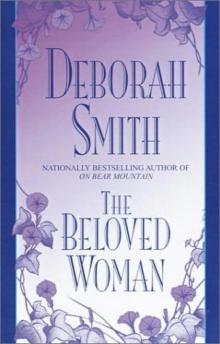 The Beloved Woman
The Beloved Woman Alice At Heart
Alice At Heart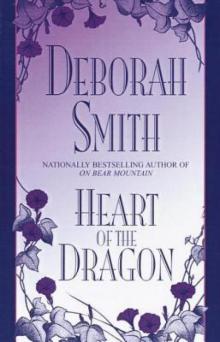 Heart of the Dragon
Heart of the Dragon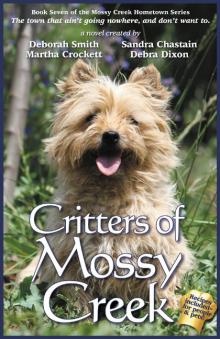 Critters of Mossy Creek
Critters of Mossy Creek Diary of a Radical Mermaid
Diary of a Radical Mermaid Caught by Surprise
Caught by Surprise Stranger in Camelot
Stranger in Camelot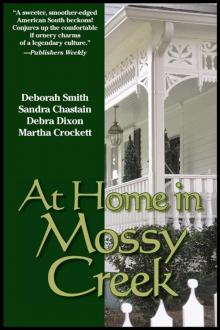 At Home in Mossy Creek
At Home in Mossy Creek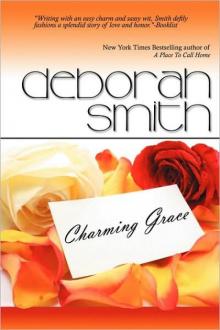 Charming Grace
Charming Grace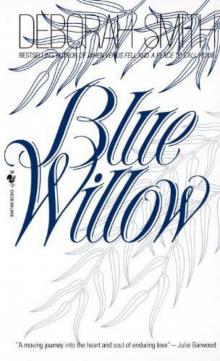 Blue Willow
Blue Willow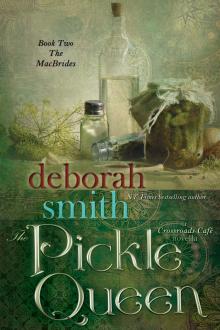 The Pickle Queen: A Crossroads Café Novella
The Pickle Queen: A Crossroads Café Novella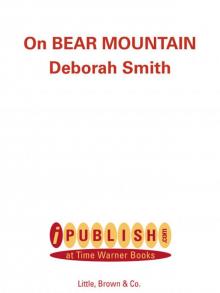 On Bear Mountain
On Bear Mountain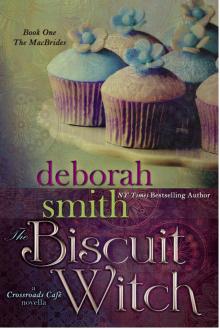 The Biscuit Witch
The Biscuit Witch Sara's Surprise
Sara's Surprise More Sweet Tea
More Sweet Tea The Apple Pie Knights
The Apple Pie Knights The Silver Fox and the Red-Hot Dove
The Silver Fox and the Red-Hot Dove Sweet Hush
Sweet Hush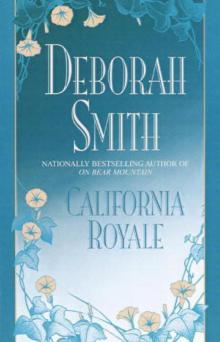 California Royale
California Royale Hot Touch
Hot Touch Miracle
Miracle The Stone Flower Garden
The Stone Flower Garden A Place to Call Home
A Place to Call Home Silk and Stone
Silk and Stone Honey and Smoke
Honey and Smoke Jed's Sweet Revenge
Jed's Sweet Revenge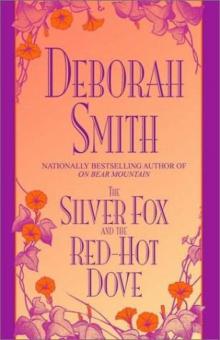 Silver Fox and Red Hot Dove
Silver Fox and Red Hot Dove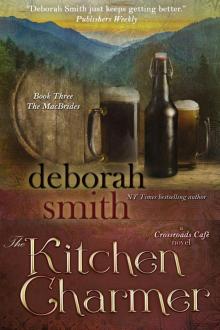 The Kitchen Charmer
The Kitchen Charmer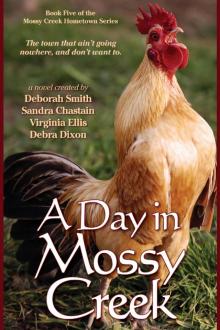 A Day in Mossy Creek
A Day in Mossy Creek Never Let Go
Never Let Go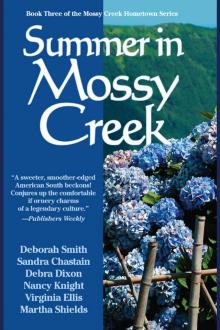 Summer in Mossy Creek
Summer in Mossy Creek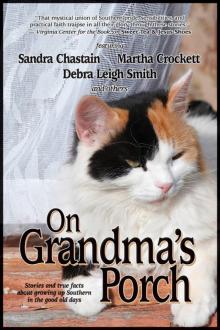 On Grandma's Porch
On Grandma's Porch The Crossroads Cafe
The Crossroads Cafe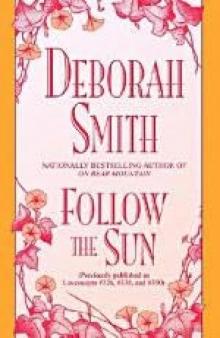 Follow the Sun
Follow the Sun The Yarn Spinner
The Yarn Spinner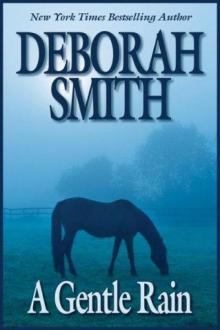 A Gentle Rain
A Gentle Rain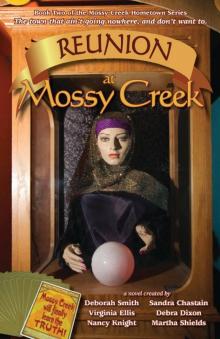 Reunion at Mossy Creek
Reunion at Mossy Creek